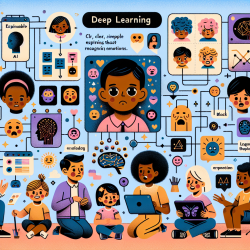As a Special Education Director, you’re always on the lookout for innovative ways to enhance the therapy services provided to students. Recent research on the effectiveness of videoconferencing-based treatment for alcohol use disorders offers valuable insights that can be applied to special education therapy. Here’s a breakdown of how these findings can help improve your practice.
Understanding the Research
The study titled Effectiveness of Optional Videoconferencing-Based Treatment of Alcohol Use Disorders: Randomized Controlled Trial was conducted to evaluate whether offering videoconferencing as an option could increase adherence to and effectiveness of treatment. The results were promising: patients who had the option to use videoconferencing were less likely to drop out prematurely and stayed in treatment longer compared to those who received only face-to-face treatment.
Applying the Findings to Special Education
Here’s how you can implement these findings in your school district:
- Increase Flexibility: Offering videoconferencing options for therapy sessions can provide flexibility for students and their families, making it easier to attend sessions consistently.
- Reduce Barriers: For students who have difficulty traveling to the school or clinic, videoconferencing can eliminate the barriers of distance and time.
- Boost Engagement: The autonomy to choose between in-person and online sessions can empower students and increase their engagement in therapy.
Overcoming Challenges
While the benefits are clear, there are challenges to consider:
- Technical Issues: Ensure that both therapists and students have access to reliable technology and provide training to minimize technical difficulties.
- Privacy Concerns: Secure platforms and clear privacy policies are essential to protect student information.
- Staff Training: Therapists may need additional training to effectively conduct sessions via videoconferencing.
Encouraging Further Research
The study’s findings highlight the potential of videoconferencing but also underscore the need for further research. Encourage your team to stay updated with the latest studies and consider conducting your own research to explore the specific benefits and challenges within your district.
To read the original research paper, please follow this link: Effectiveness of Optional Videoconferencing-Based Treatment of Alcohol Use Disorders: Randomized Controlled Trial.










